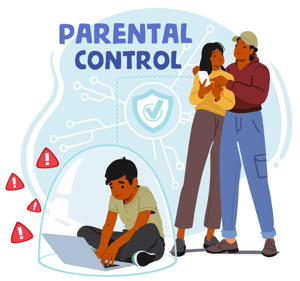Table of Contents
What Is Kids Computer Science?
Kids computer science refers to the practice of introducing young learners, typically between the ages of 4 and 12, to basic concepts of computer programming and coding. This educational approach aims to familiarize children with the fundamental principles of computational thinking and problem-solving in a fun and engaging manner. Early programming experiences are designed to foster critical thinking skills, creativity, logical reasoning, and perseverance, all of which are essential in today’s digital world.
Motivational Video for Parents:
Here’s an extended explanation of the key aspects of early programming for children:
- Introduction to Computational Thinking: Early programming introduces children to computational thinking, which is the process of formulating problems and their solutions in a way that computers can effectively execute. This includes breaking down complex tasks into smaller, more manageable steps, identifying patterns, and developing algorithms to solve problems.
- Basic Coding Concepts: Children are introduced to basic coding concepts such as sequences, loops, conditionals, variables, and functions through age-appropriate activities and games. These concepts are typically taught using visual programming languages or educational platforms specifically designed for children, which employ block-based programming interfaces that simplify coding by using graphical blocks that represent code constructs.
- Problem-Solving Skills: Programming activities for children often involve solving puzzles, completing challenges, and creating simple projects or games. These activities encourage children to think critically, analyze problems, and develop strategies to overcome obstacles, thereby fostering problem-solving skills that are valuable both in programming and in other areas of life.
- Creativity and Expression: Early programming encourages children to express their creativity by designing and building their digital creations, such as animations, stories, and games. By providing them with tools and resources to bring their ideas to life, programming empowers children to explore their interests, experiment with different concepts, and unleash their imaginations.
- Collaboration and Communication: Many programming activities for children promote collaboration and communication skills by encouraging them to work together in pairs or groups to solve problems and complete projects. Through collaboration, children learn to share ideas, listen to others, and communicate effectively, essential skills for success in the digital age and beyond.
- Real-World Relevance: Early programming experiences often highlight the real-world relevance of coding by showing children how it is used in various fields such as science, engineering, art, and entertainment. By connecting coding with everyday life, children gain a deeper understanding of its importance and potential applications, motivating them to continue learning and exploring new concepts.
- Positive Attitudes Towards Technology: Early exposure to programming can help children develop positive attitudes towards technology by demystifying it and empowering them to create with it rather than just consume it. By building confidence in their ability to understand and manipulate technology, children are better prepared to navigate the increasingly digital world they live in.
In summary, early programming for children is a valuable educational approach that introduces young learners to computational thinking, coding concepts, problem-solving skills, creativity, collaboration, and real-world relevance in a fun and engaging manner. By providing children with opportunities to explore and experiment with programming from an early age, we can help them develop essential skills and attitudes that will serve them well throughout their lives.
Related Reading:
Reviews of programming for children with CodaKid:

Reviews on behalf of parents about programming for kids with CodaKid courses:
“CodaKid has been a game-changer for my child’s learning experience. The range of courses from Minecraft modding to Python programming provides a fun, engaging way for them to develop coding skills. The self-paced learning environment allows my child to learn at their comfort level, making education both effective and enjoyable.”
“We were looking for a coding program that offers both breadth and depth, and CodaKid delivered beyond our expectations. The live tutoring option, with instructors from top universities, has provided invaluable personalized guidance for our child, helping them to grasp complex concepts more easily.”
“As a parent, I appreciate the comprehensive support CodaKid offers. The platform is not just about coding; it’s about solving problems, thinking creatively, and building something real. My child has gained confidence in their abilities and is always excited to show off the games and projects they’ve developed.”
“CodaKid has been an excellent resource for my kids to dive into the world of coding. The courses are well-structured, making learning progressive and exciting. The emphasis on using professional tools and languages means my children are learning skills that will be valuable in the future. Plus, the customer support is fantastic, always ready to help with any questions or issues.”

Why Get Your Kids Into Coding and AI Early?
Dear Parents,
As a teacher of online coding courses for kids at CodaKid, I understand the importance of introducing coding to children early on. Here’s why sending your kids to coding early is beneficial:
Investing in your child’s coding education early provides them with invaluable skills for the future job market. In today’s digital age, coding is becoming a fundamental literacy, much like reading and writing. By starting early, children can develop a strong foundation in computational thinking, problem-solving, and creativity, setting them up for success in any career path they choose.
Moreover, coding fosters critical thinking and resilience. Through coding, children learn to break down complex problems into manageable steps and persistently troubleshoot until they find a solution. These skills not only apply to programming but also translate to various real-life situations, enhancing their ability to tackle challenges with confidence.
Additionally, early exposure to coding sparks curiosity and ignites a passion for technology. By engaging with coding at a young age, children have the opportunity to explore their interests, unleash their creativity, and develop a lifelong love for STEM (science, technology, engineering, and mathematics) fields.
Ultimately, sending your kids to coding early opens doors to endless opportunities and equips them with essential skills that will benefit them academically, professionally, and personally throughout their lives. – David Dodge
Is Programming the New Literacy of the 21st Century?
Traditionally, literacy has been synonymous with the ability to read and write, enabling individuals to communicate effectively and participate in society. However, as our world becomes increasingly digitalized, proficiency in programming languages is emerging as a crucial skill set.
Programming, once confined to the realms of computer science and engineering, has now become a fundamental aspect of modern life. From mobile applications to internet-connected devices, from artificial intelligence to blockchain technology, code is the language that powers innovation and drives progress. In this context, understanding programming languages offers individuals the ability to comprehend, manipulate, and create the technologies that shape our world.
Moreover, programming proficiency goes beyond mere technical know-how; it fosters critical thinking, problem-solving, and creativity. By learning to code, individuals develop the ability to dissect complex problems, break them down into manageable components, and devise elegant solutions. This skill set is invaluable in an era marked by rapid technological advancement and unprecedented challenges.
Furthermore, programming has the potential to democratize access to opportunities in the digital economy. Initiatives such as coding boot camps, online tutorials, and community workshops are making coding education more accessible than ever before. By equipping individuals from diverse backgrounds with programming skills, we can bridge the digital divide and empower communities to participate in the digital revolution.
However, promoting programming as the new literacy of the 21st century also poses challenges. Socioeconomic disparities, gender imbalances, and educational inequities must be addressed to ensure that coding education is accessible to all. Moreover, while programming proficiency is essential, it should not overshadow the importance of traditional literacy skills such as reading, writing, and critical analysis. Rather, programming should complement existing literacies, enriching our cognitive toolkit for navigating the complexities of the digital age.
In conclusion, programming is undoubtedly becoming a vital form of literacy in the 21st century. As technology continues to advance and permeate every aspect of our lives, the ability to understand and create with code will become increasingly essential. By embracing programming as a new form of literacy, we can empower individuals to thrive in the digital age and shape a future where technology serves the common good.
Related Reading:

Proficiency in Coding and AI is Now Considered Mission Critical Across Numerous Fields
The upcoming generation of programmers is already gearing up for tomorrow’s most groundbreaking positions. By 2033, graduating high school students will be categorized into those equipped with computer science expertise and those without, leading to an economic division between nations prioritizing coding education and those neglecting it. The former will flourish in the job market, while the latter will face difficulties securing employment. Otherwise, companies such as ours will be compelled to offshore high-paying technical roles.
Future career success hinges on students acquiring coding skills to fulfill the anticipated demand for technically oriented jobs. In this piece, I discuss the rising need for coding proficiency across various sectors. Making coding education accessible to all demographics creates significant opportunities for students from diverse backgrounds.
A list of New Professions That Have Emerged Due to The Development of Programming:
1. Software Engineer: Develops, tests, and maintains software applications and systems.
2. Data Scientist: Analyzes and interprets complex data sets to inform business decisions.
3. Web Developer: Designs and builds websites and web applications.
4. Mobile App Developer: Creates applications for mobile devices such as smartphones and tablets.
5. Cybersecurity Specialist: Protects computer systems and networks from cyber threats and attacks.
6. AI/Machine Learning Engineer: Designs and implements artificial intelligence and machine learning algorithms.
7. Blockchain Developer: Builds decentralized applications and implements blockchain technology.
8. DevOps Engineer: Streamlines software development and deployment processes through automation and collaboration.
9. Cloud Architect: Designs and manages cloud infrastructure and services.
10. Game Developer: Creates video games for various platforms, including consoles, PCs, and mobile devices.
11. Robotics Engineer: Designs, builds, and programs robots for various applications, from manufacturing to healthcare.
12. UX/UI Designer: Enhances user experience and interface design for software applications and websites.
13. IoT (Internet of Things) Developer: Builds applications and systems that connect and interact with Internet-enabled devices.
14. Big Data Engineer: Develops systems and processes to handle and analyze large volumes of data.
15. Virtual Reality/Augmented Reality Developer: Creates immersive virtual and augmented reality experiences for entertainment, training, and other purposes.

At What Age Can Students Begin to Learn to Code?
Children as young as six can start learning coding, enjoying and understanding basic computing concepts similar to subjects like math and English. Research indicates that early exposure to coding can enhance performance in standardized math and reading tests. Early introduction to coding through online resources, which are often free or low-cost, has no downsides and can encourage interest in STEM fields for future studies. Coding education fosters valuable skills such as creativity, problem-solving, and resilience, setting a foundation for diverse career opportunities later in life.
Why Coding for Kids is Key to Business Success
Coding for kids is crucial for business success for several reasons. Firstly, it prepares the next generation for the digital economy, where technology and coding skills are increasingly fundamental across all industries. By equipping children with coding knowledge from a young age, we ensure a workforce capable of driving innovation and maintaining the competitive edge of American businesses globally.
Secondly, coding teaches critical thinking, problem-solving, and creativity, skills that are valuable in any professional setting. These competencies enable future leaders to tackle complex challenges, innovate, and adapt to rapidly changing environments, which are essential qualities for sustaining business growth and development.
Moreover, introducing coding in early education helps to bridge the digital divide and fosters inclusivity in the tech industry. It provides all children, regardless of their background, the opportunity to pursue high-demand careers in technology, contributing to a diverse and skilled workforce that reflects the broader society.
Lastly, coding education aligns with the evolving nature of work, where digital literacy is a prerequisite. As automation and artificial intelligence become more prevalent, the demand for professionals who can design, manage, and improve these technologies grows. Early coding education ensures that the future workforce is not only prepared to use technology but also to innovate and create new solutions.

Conclusion
In summary, coding for kids is not just an educational trend; it’s a strategic investment in the future of American business and the global economy. By prioritizing coding education, we can cultivate a generation of skilled, adaptable, and innovative individuals who will lead American businesses to new heights of success.

















